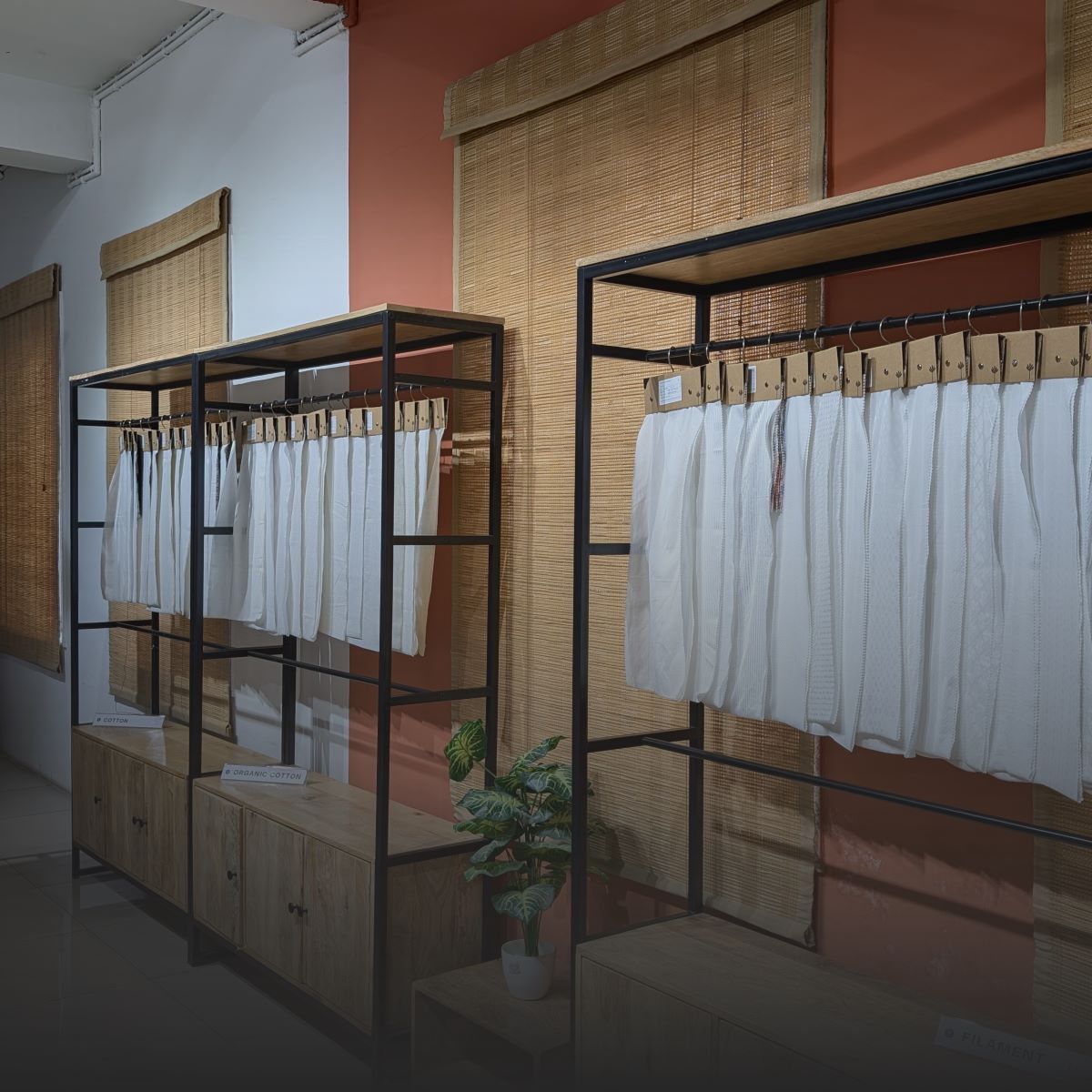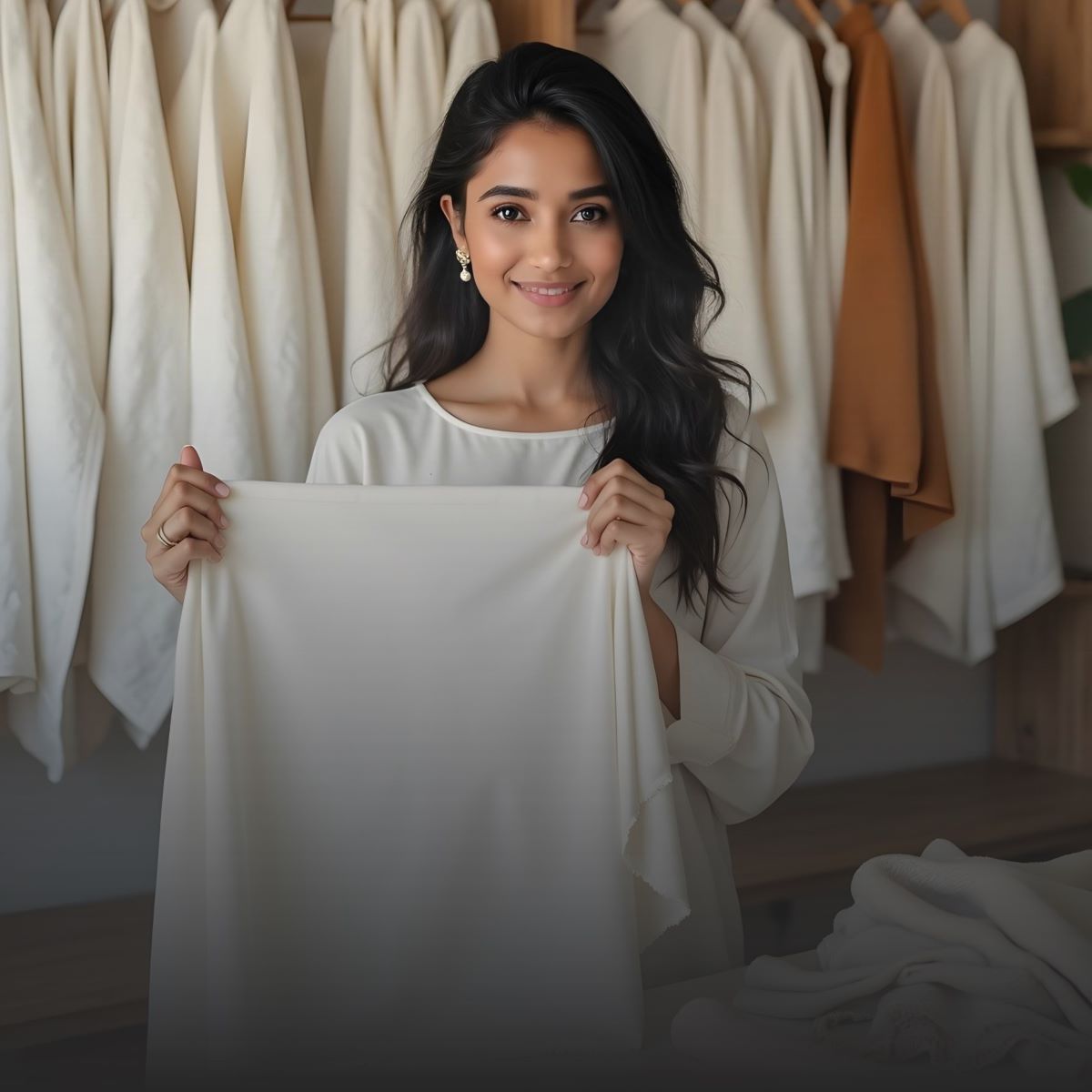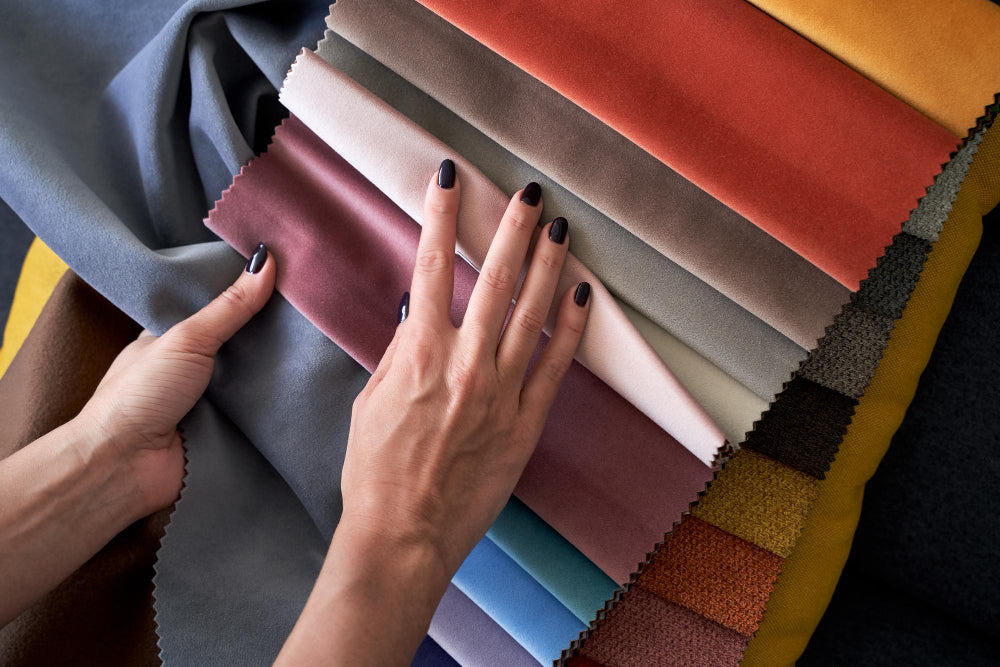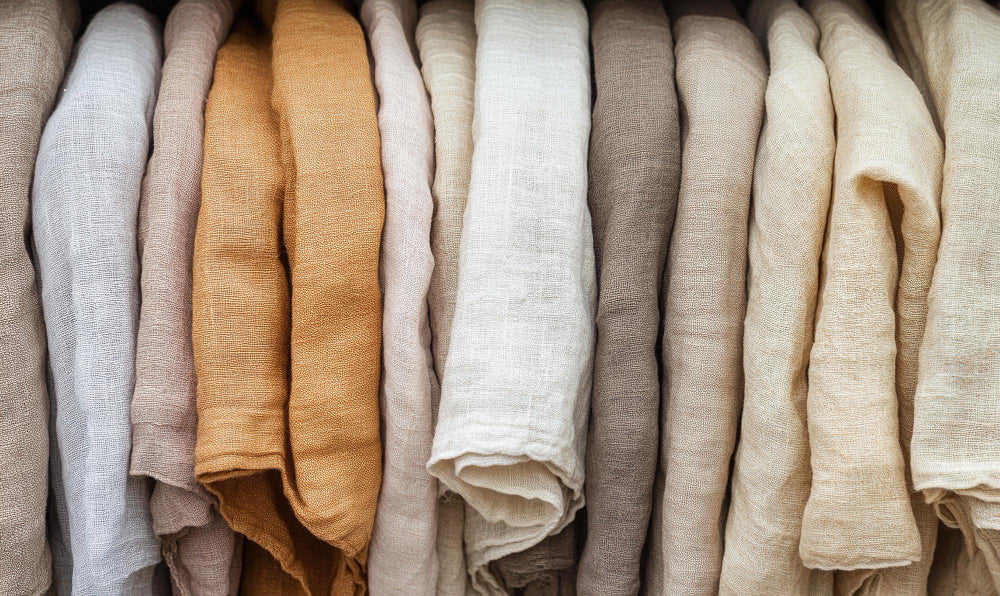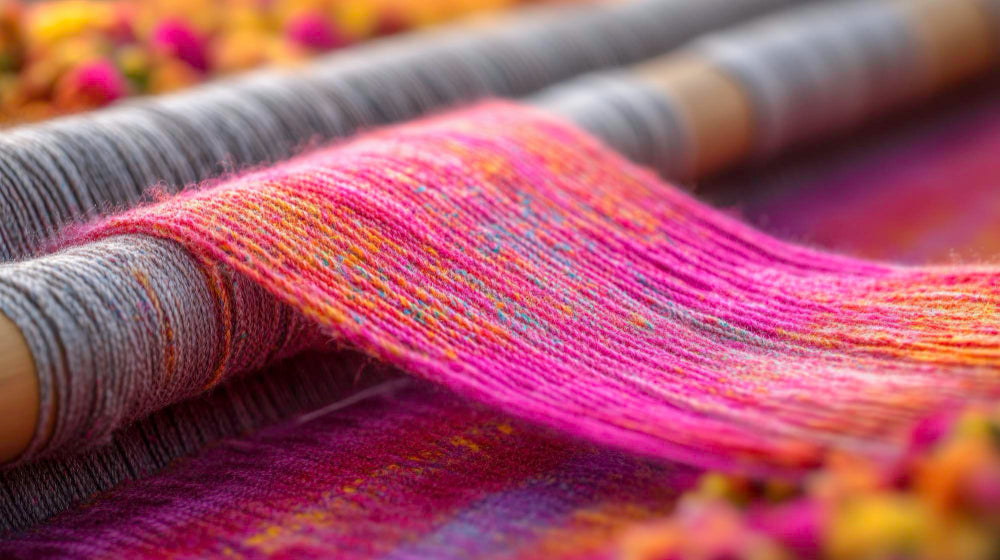One of the most important things for a fashion brand or clothing business to do is find the right "fabric supplier in New York." The Garment District is home to hundreds of wholesalers, importers, and converters. Picking a reliable partner is the best way to ensure stable quality, smooth production, and higher profits. But because there are so many choices, it can be hard to find a source that really meets your needs.
This guide clears up that trip. It walks you through a practical, simple checklist that will help you confidently evaluate sources, whether you're starting your first collection or expanding your business around the world.
Why Choosing the Right Fabric Supplier Matters
Your product quality, brand image, profit margins, and production schedules are all affected by your "wholesale fabric supplier." A reliable partner makes your supply chain stronger, while an unreliable one causes delays, problems, and money losses.
A reliable source gives you:
- Reliable, consistent quality
- Flexible MOQs for small and large brands
- Transparent pricing and communication
- Fast sampling and predictable delivery timelines
- Access to new trends, fabrics, and innovations
Making the right choice will ensure long-term company stability and scalability.
The Ultimate Checklist for Choosing a Fabric Supplier in New York
The list below is based on real-life sourcing problems and has been approved by designers, makers, and production teams.
1. Define Your Product & Technical Requirements
Make sure you know what you need before you talk to providers. It's easier to avoid sample delays and misunderstandings when the requirements are precise.
Explain:
- Fabric type (knit, woven, denim, wool, silk, functional textiles)
- GSM/weight
- Fibre composition
- Weave or knit construction
- Handfeel/drape
- Print or dye requirements
- Compliance (OEKO-TEX, GOTS, REACH)
- Budget and allowable fabric cost

2. Verify Supplier Experience & Industry Reputation
Textile sellers in New York range from high-end wholesalers to shady intermediaries.
Look for these things:
- Years in Business
- Industry certifications
- Verified testimonials
- Responsiveness
- Garment District reputation
Check each other out at Texworld NYC and in business networks.
3. Evaluate Fabric Quality with Testing
Quality checks are necessary, not optional.
Think about:
- Colourfastness
- Shrinkage
- Pilling resistance
- GSM accuracy
- Tensile strength
- Surface consistency
When lab test reports are ready, ask for them.
4. Understand MOQ Requirements
New brands need to be able to change their MOQ.
Normal MOQs in New York:
- Stock fabrics: 1–50 yards
- Converters: 100–300 yards
- Custom developments: 300–1000 yards
5. Compare Pricing Structures
Look for clear prices.
Think about:
- Sample yard pricing
- Bulk pricing tiers
- Dyeing/printing charges
- Extra fees (cutting, swatching)
It may cost more to live in New York than in foreign hubs, but the speed and ease of getting around often make it worth it.
6. Check Lead Times & Delivery Accuracy
Work can't be done when goals aren't met.
you can ask:
- A lead time example
- Lead time for bulk orders
- Ways to speed up orders
- How to deliver
Reliable providers keep track of their stock and stick to their deadlines.
7. Evaluate Communication Quality
Good fabric providers talk to you clearly and quickly.
Assess:
- Response time
- Detail in communication
- Transparency during issues
Not being able to talk to someone well is a red flag.

8. Check Sustainability & Compliance
Sustainability is now a way to get ahead of the competition.
Ask for:
- GOTS, GRS, OEKO-TEX certificates
- Fibre sourcing details
- Chemical usage information
- Sustainability processes
9. Evaluate Range & Innovation
A supplier with a wide range of fabrics will help your Business grow in the long run.
Look for:
- Trend-driven developments
- Seasonal collections
- Functional textiles
- Custom dye/print capabilities
10. Sample Evaluation & Lot Consistency
Ask for more than one lot to get a better reading.
Check:
- Colour match
- Fabric width
- Weight
- Handfeel
- Surface finishing
Reliability is the same as consistency.
11. Review Policies & Agreements
Read the rules before you place a bulk order.
Check:
- Replacement policy
- Lot matching assurance
- Payment terms
- Approval process
Reliable providers write down their promises very clearly.
12. Digital Capabilities
Digital tools are used by modern suppliers.
Look for:
- Online catalogues
- Real-time stock updates
- Virtual consultations
- Order tracking systems
13. Visit Supplier Showrooms
If you can, go to stores in New York City to get a first-hand feel for them.
Assess:
- Storage quality
- Variety
- Staff expertise
- Fabric organisation
14. Evaluate Problem-Solving Ability
Ask questions based on situations:
- What if the lot colour varies?
- What if the fabric shrinks?
- How do you manage quality complaints?
Suppliers you can trust give you clear answers, not justifications.
15. Compare New York Suppliers with Global Options
It's smart to source in a balanced way.
Compared to:
- India: Custom development, sustainability, competitive pricing
- Turkey: Fast fashion, strong knit industry
- China: Large-scale production and synthetics
Some brands get samples from suppliers in New York and buy in bulk from sources around the world.
Common Mistakes to Avoid
Designers and sourcing teams with a lot of experience can still make mistakes that delay projects, cost too much, or lower the quality of the end product. If you know about these common mistakes, you can avoid problems that aren't necessary and make better, more sure decisions about where to source.
- Choosing price over quality
- Ignoring sample inconsistencies
- Not testing fabrics
- No clear contract terms
- Overlooking communication issues
- Not asking for multiple lots

Top Questions to Ask a Fabric Supplier Before You Commit
Before you place your large order, make sure you fully understand the supplier's skills, quality standards, and dependability by asking the right questions. Every fashion brand should ask these critical questions, which were taken from Fabriclore's expert guide "What Questions Should You Ask A Fabric Supplier Before Placing An Order?" and made better:
-
Can you guarantee consistent lot matching across bulk production?
(Ensures shades, GSM, and finish do not vary between lots.) -
Do you have updated quality or compliance certificates?
(OEKO-TEX, GOTS, REACH, GRS—depending on your fabric type.) -
What are your minimum order quantities for both sampling and bulk?
(Helps plan budgets and production timelines accurately.) -
Is your sample pricing different from bulk pricing?
(Avoids confusion during costing and price negotiations.) -
How do you control and manage shade variations during dyeing?
(Critical for colour-heavy collections, uniforms, and premium outerwear.) -
What is your policy for replacements or returns in case of defects?
(A responsible supplier clearly defines solutions—not excuses.) -
Do you offer custom fabric development or only stock options?
(Important for brands seeking exclusivity or unique textures.) -
Can you share references or samples from previous clients?
(A reliable supplier is always transparent about past work.)
To find out more about all the essential questions to ask and how to evaluate sellers in a step-by-step way, read Fabriclore's complete guide, "Fabric Supplier Checklist Before Order," which is linked above.
Why Fabriclore Is the Right Fabric Sourcing Partner
Fabriclore has a global presence and a sourcing ecosystem that is powered by technology. This has made it a trusted partner for fashion brands, private labels, startups, and big manufacturers. Fabriclore offers a streamlined, straightforward, and creative way to source goods, unlike traditional suppliers who are limited by stock availability or geographical restrictions.
What makes Fabriclore unique:
- Extensive Fabric Library: Access to 5000+ certified fabrics sourced directly from reputed Indian mills, artisan clusters, and sustainable manufacturers.
- Complete Fabric Solutions: From greige (raw) and RFD to custom-dyed, printed, and finished fabrics, Fabriclore supports every stage of textile development with low MOQ flexibility.
- Custom Fabric Development: Brands can make their own unique fabrics that follow the latest trends by customizing the colors, textures, prints, and arrangements.
- Compliance-Ready Sourcing: Every fabric adheres to global standards like OEKO-TEX, GOTS, and GRS, ensuring ethical and safe production.
- Tech-Driven Platform: A seamless sourcing experience with online swatch ordering, digital approvals, tracking, transparent documentation, and dedicated sourcing support.
- Global Delivery: Shipping across New York, Canada, the UK, Europe, the Middle East, Australia, and more—making it easier for international brands to source premium Indian textiles.
- Small Business Friendly: Fabriclore not only offers fabrics but also provides custom apparel manufacturing with low MOQ, supporting designers, boutiques, small brands, and private labels with limited runs or capsule collections.
Fabriclore offers the best quality, dependability, and an easy way to find what you need, whether you need woven fabrics, knits, denim, technical textiles, or notable developments. Visit Fabriclore.com to find out more.
Conclusion: Choosing the Right Fabric Supplier in New York
Picking a fabric supplier is not a one-time deal, but a long-term strategy choice. When you work with the right partner, you can be sure of consistent quality, on-time output, higher profits, and brand trustworthiness. Brands can confidently look at suppliers, compare options, and build relationships that help growth if they use this checklist.
Fabriclore is a global leader in fabric sourcing, and they help designers and brands all over the world, not just in New York. They do this by providing tech-enabled fabric sourcing, compliance-driven processes, custom developments, and a smooth experience from samples to bulk.
Fabriclore is the company you can trust to help you take your buying to the next level.
FAQs
1. What Should I Look For When Choosing A Fabric Supplier In New York?
Check for consistent fabric quality, transparent pricing, dependable lead times, and easy contact. A reliable supplier will give you certifications, exact MOQs, and samples from more than one lot. These checks help make sure that your production goes quickly and you don't run into any problems.
2. How Do I Know If A Fabric Supplier Is Reliable?
A reliable supplier shares test reports, responds promptly, maintains stock transparency, and explains their processes clearly. You can also assess reliability through client references, online reviews, and showroom visits. The more open they are, the better they usually perform during bulk production.
3. Why Are Moqs Important When Choosing A Fabric Supplier?
Check for consistent fabric quality, transparent pricing, dependable lead times, and easy contact. A reliable supplier will give you certifications, exact MOQs, and samples from more than one lot. These checks help make sure that your production goes quickly and you don't run into any problems.
4. How Can I Avoid Fabric Quality Issues When Sourcing In New York?
You should ask for test results, swatches, and samples from various lots. Check for GSM precision, shrinkage, colorfastness, and evenness of the surface. OK, a final sample and write down all the details clearly. This makes sure that the bulk cloth is what you want it to be and lowers the chance of defects.
5. What Questions Should I Ask A Fabric Supplier Before Placing An Order?
Find out about guarantees for matching lots, compliance certificates, minimum order quantities (MOQs), shade-control methods, replacement policies, and choices for custom development. These questions can help you figure out how trustworthy and open someone is. Read Fabriclore's complete guide, Fabric Supplier Checklist Before Order, for a full explanation.
We also happen to be a magnet for suggestions, and would love to catch yours….throw us yours on hello@fabriclore.com
Also Read Related Blogs:
1. 10 Best Clothing Manufacturers & Apparel Factories in New York
2. Buy Fabric Swatches – Trusted by Designers Across New York
3. Best Online Store to Buy Cotton Fabric in New York
4. The Most Popular Fabrics in New York Fashion Week 2024
